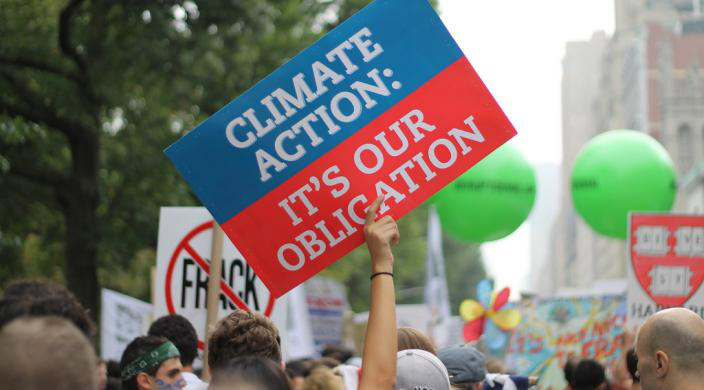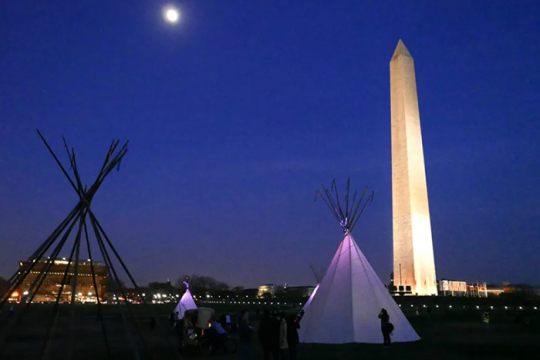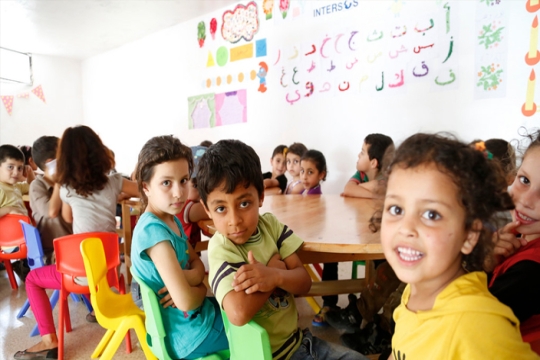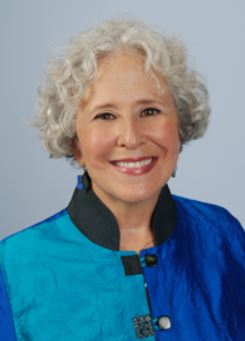
During the month of Elul, we engaged in reflection in hopes of spiritual return, or t’shuvah. The Green Team at Temple Israel Boston (TI) has been reflecting—and working— on ways to reduce our synagogue’s carbon footprint and to educate congregants on ways they can reduce their individual carbon footprint. As Rabbi Abraham Joshua Heschel said, “Few are guilty, but all are responsible.” Individual and collective t’shuvah, repentance, are both essential.
Having a dedicated and hands on Green Team is central to any congregation’s sustainability efforts. One of TI’s Green Team’s collective commitments is to engage in both local and national activities in hopes of effecting policy change. Through our work with the RAC, we learned that individual houses of worship were being asked to sign the “We Are Still In” declaration. We Are Still In is a promise to world leaders that Americans will not retreat from the Paris Agreement’s commitment to reducing emissions and stemming the causes of climate change.
The effort to add our congregation’s name to this pledge was driven by a diverse group of the congregation’s leadership including our Board, clergy and Green Team. In addition to signing onto We Are Still In, our congregation amended our Brit Olam to indicate that Temple Israel was committed to tackling climate change as part of our social justice agenda.
Although task of preserving the planet is enormous and daunting, signing and amending Temple Israel’s Brit Olam and signing onto the We Are Still In campaign are actions that any Reform congregation can take to help mitigate the effects of climate change and address issues of climate justice. These successes were largely due to the efforts of TI’s Cantor, Roy Einhorn, who is the Green Team’s Clergy partner. Cantor Einhorn has worked with our president, Gary Pforzheimer, Board, and executive director, Dan Deutsch, to facilitate the approval of many of the Green Team’s requested actions.
Midrash Rabbah commentary on Ecclesiastes 7:13 teaches us that when God created the first human beings, God led them around the Garden of Eden and said:
"Look at my works! See how beautiful they are, how excellent! Take care not to spoil or destroy My world, for if you do, there will be no one to repair it after you.”
Among the many compelling signs at climate marches are ones that read “there is no Planet B.” We are the stewards who must protect and preserve this planet for future generations, and the window in which we can honor that imperative is rapidly closing.
Here are some ways that you as an individual can engage in climate change mitigation:
- Put savings in socially responsible/impact investments;
- Work for and donate to candidates—whether they be in your own state or elsewhere who pledge to make protecting the environment a legislative priority;
- Contact your representative to help protect car emission standards;
- Purchase products from companies that practice sustainability; and
- Buy organic and locally grown fruits and vegetables from farmers markets and CSAs.
Those acts—if done by great numbers of people—will matter. A lot. Our Green Team’s kavanah, or intention, is that we will immerse, and remain immersed, in the urgent work of turning and returning to our higher selves, so that, by our spiritual return, we can plant seeds of hope for our earth’s physical return.
Here’s to a green 5779 for the earth and all living things.
Related Posts

Native American Heritage Month: Continued Support for the Indigenous Population is a Necessity

Congress Must Expand the Child Tax Credit, a Powerful Tool Proven to Reduce Poverty


